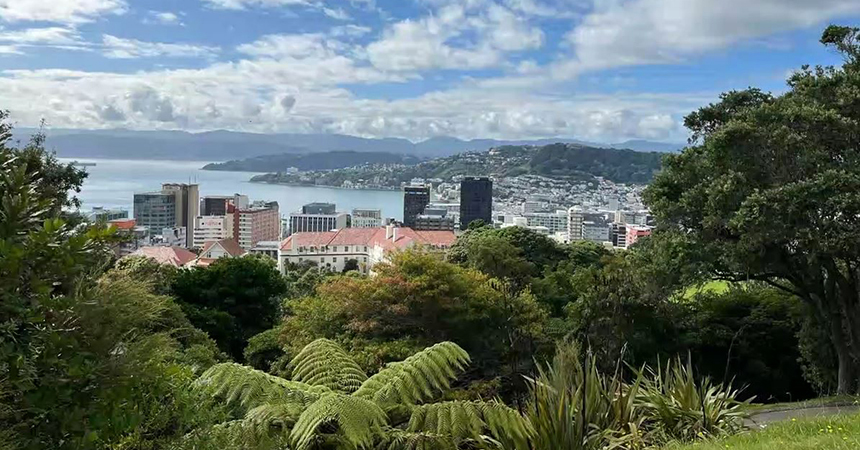
A recent conference reinforced the need for Energy Trust’s community-based approaches when it comes to clean energy solutions.
In March, Energy Trust’s Tracy Scott was invited to present at a conference on strategies to better serve what conference organizers called “hard to reach” energy users, hosted by the International Energy Association.
The conference in Wellington, New Zealand brought together industry leaders from around the world to share best practices for connecting with groups including people with low incomes, people of color and small business owners.
For energy efficiency programs, these are customers who stand to benefit the most from clean energy but may face barriers to access, from high upfront costs to distrust and fear.
The conference featured speakers from indigenous communities including Maori people from New Zealand who offered a different perspective on the label “hard to reach.”
“As one participant put it, “We’re not hard to reach, you’ve just never tried. You don’t know us, you don’t live where we live and you don’t know how we live,’” Scott recounted.
“That really struck me and helped me understand how the place-based services that Energy Trust offers are critical to connecting with these communities. It only works when it’s being delivered by people who are known and trusted and understand how the community actually lives.”
This is something Energy Trust has been doing for years.
In her presentation, Scott described how Energy Trust uses partnerships to connect with customers. For instance, Energy Trust has formed a tribal working group with members from some of the federally recognized tribes in Oregon.
As utility ratepayers, tribal members and other indigenous people pay into Energy Trust programs but historically participate at lower rates. Additionally, ?many tribes in Oregon are tackling issues that Energy Trust could support them on including energy planning, climate mitigation and resiliency.
The working group provides input on how Energy Trust can boost participation while providing greater benefits specific to tribal needs.
Another example: To engage and build trust with residential customers, Energy Trust offers higher incentives for home upgrades delivered through community-based organizations that serve people of color, rural customers, customers with low to moderate incomes, people with disabilities and veterans.
In 2022, 16 community-based organizations delivered nearly $1 million in incentives to customers. Not only do these groups act as trusted connections between Energy Trust and customers, they understand their community’s needs and can advise Energy Trust on relevant offers and services.
Scott was invited to the conference by the Massachusetts-based Consortium for Energy Efficiency, which has worked with IEA on this topic in the past. Energy Trust is a member of CEE.
